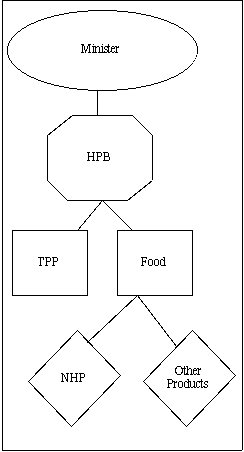HEAL Committee Report
If you have any questions or comments regarding the accessibility of this publication, please contact us at accessible@parl.gc.ca.
MINORITY REPORT
to the
House of Commons Standing Committee on Health
The Reform Party of Canada
Official Opposition
Grant Hill, MP
(Macleod)
Reed Elley, MP
(Nanaimo-Cowichan)
Maurice Vellacott, MP
(Wanuskewin)
October 27, 1998
The Reform Party of Canada wishes to thank everybody who participated in the Standing Committee on Health's review of natural health products (NHPs). As a consistent national political voice for the millions of Canadians demanding freedom of choice over NHPs, the Reform party has been fully supportive of this standing committee initiative. However, while buoyed to some degree by some positive aspects of the standing committee's Final Report, as a result of the inadequate degree to which the central issue of Canadians' freedom of choice is addressed, Reform was compelled to submit this committee Minority Report.
Notwithstanding Reform's inability to support the Final Report, there are a number of key positive recommendations that Reform feels deserve attention:
- Creation of an NHP Advisory Panel to allow input from experts who are professionally involved with NHPs
- Recognition of the need for improved labelling of products
- Recognition of the need to question the existence of FDA Schedule `A'
- Creation of an open, accountable appeals process
- Training of inspectors/enforcement officers on NHPs
In the final analysis, however, the committee's overall report recommends a continuation of the existing situation of a paternal federal government that must protect Canadians from the unknown evils of NHPs. This is inconsistent with Canadians' experience that shows overwhelmingly an incredibly safe historical pattern of use of NHPs. As for the introduction of new, untried products, Reform believes regulators have a higher duty to review the data that the product sponsor brings forth. But regulators should only be refusing to grant compliance for products based on sound scientific reasons - reasons that should be clearly demonstrated. And let not partisan rhetoric take away from Reform's overriding concern: public safety must always be the first priority.
Canadians universally recognize NHPs as basically foods - certainly not as drugs - especially when consumed in the dosage and form recommended. The existingoveremphasis on government control, licensing and regulation of mostly benign consumer products could be greatly simplified.

In fact, Reform recommends an organization structure for regulating NHPs
such as that protrayed in the adjacent model. By regulating NHPs under
the purview of Health Canada's Food Directorate, Reform believes we could
ensure that these substances are viewed within the culture most familiar
to them and thereby never again fall victim to the intimidating practises
and procedures of the Drugs Directorate (TPP). And while it has been suggested
that such a structure would lend NHPs to potential policy conflict with
CODEX Alimentarius, Reform firmly disagrees. Regardless of CODEX policy,
Canadian domestic law (such as the Food and Drugs Act and Regulations)
reigns supreme over international policy recommendations. Further, while
Reform has not been supportive of numerous Codex proposals dealing with
NHPs, the debate over Codex must take place as a separate issue.
Consistent with the paternal theme in the Final Report is the committee's recommendation for more resources for NHP enforcement purposes. Recommending that existing enforcement personnel receive adequate NHP training is laudable. But recommending more enforcement personnel for NHPs simply contradicts every principle Canadians demanding this NHP review have articulated. Like most Canadians, Reform frankly believes there are already too many enforcement personnel barging into mom and pop health food stores with RCMP escort, seizing computers and raiding store shelves for packets of harmless melatonin or stevia (an herb traditionally used as a natural sweetener). Surely the Government of Canada has more important things on which to spend taxpayer's money. Yet, under cost recovery for the new NHP products, the government will extract more taxpayer money. Inevitably, with such a committee recommendation, NHP consumers will sadly end up paying more for their products.
Finally, a policy which has always been very confusing and frustrating, particularly to consumers and businesses, is what is commonly referred to as the personal importation policy. It says that while Canadians can not buy or sell NHPs that are not approved in Canada, they can nonetheless go to the US, buy enough for personal use from US businesses and import the product back to Canada. Such a policy clearly fails any rational analysis. As such, Reform would repeal this so that all NHPs that are available by importation would necessarily be available for purchase in Canada.
The Standing Committee on Health's review of NHPs was long overdue. Evidence of that is the mountain of mail Members of Parliament received from angry constituents. In the Reform party's view, Canadians were expressing their disdain for the shackles of Ottawa bureaucracy, arbitrarily, irrationally impeding their access to safe, harmless preventive health products which also happened to be growing exponentially in demand. The answer Canadians were looking for from the standing committee's review is that the federal government must assure consumer's freedom of choice. While Reform is optimistic the recommendations contained in the Final Report move in the right direction, Reform still believes Canadians deserve, and will continue to demand, much more freedom of choice over NHPs. Reform believes an informed Canadian consumer will always be a better judge of what is best for them and their loved ones than some distant bureaucrat in Ottawa.